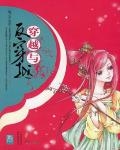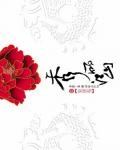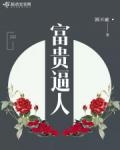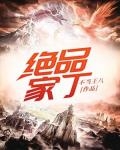Volume 3: The Land of Jingchu Chapter 225 Ding Jiangxia
It took only four days for the flag on the city wall of Echeng to change into the king's flag.
On the day the city fell, Huang Zu burned himself in the prefect's mansion - not because he was so stubborn that he wanted to die with the city, but because he understood that given his relationship with the Sun family, only his death would put the matter to rest.
Otherwise, the Nanjun Huang family will definitely have a hard time in the future...
It was because Huang Zu did not think Liu Biao could hold on to Nanjun that he had to die in the city today.
After the fire appeared in the prefectural mansion
…
"Gongjin, I'll leave it to you from now on. I'll be back in a month and a half." Sun Ce said to Zhou Yu while holding a box.
"Go ahead and light a stick of incense for my uncle," Zhou Yu said.
After Miankou and Echeng were captured, there would be no effective resistance from Xiling in the north to the Yunmengze water system in the west, and from Luo County on the north bank of the Miluo River in Changsha County in the south, that is, the eastern gate of Jingzhou in the entire southern Jiangxia and northern Changsha.
Today, the Yunmengze water system is still very abundant, unlike in the future when most of it has receded. It is still a group of lakes with a circumference of a thousand miles. The important ancient battlefield of the Three Kingdoms, Chibi, is also in the Yunmengze water system. If you go directly west from Jiangxia, you can only rely mainly on the navy.
If we go north, we have to break through Xiling, which will be a real tough battle.
As for the south...
The four counties in southern Jing are similar to those in the southern part of Jiangdong, with sparse county towns and dense mountain people, especially the southernmost Wuling County and Lingling County, which are places where barbarians are rampant.
Therefore, in history, from the end of the Eastern Han Dynasty to the beginning of the Three Kingdoms period, the ownership of Jingnan has always been very arbitrary.
During the Three Kingdoms period, Jiangxia had always been the bridgehead of Eastern Wu, and the most important Nanjun and Nanyang were always under the control of the north.
As for the four counties in southern Jing... Liu Biao "sent an edict to conquer" the four counties in the south. After Liu Biao's death, Nanyang and Nan County surrendered to Cao. Liu Bei and Liu Qi also easily gained the submission of the four counties in the south. When the people from Jiangdong came, the four counties in the south were persuaded to surrender by Lu Meng...
Especially Wuling County, which is located in the southwest of Jingzhou, which is adjacent to the southern part of Yizhou - to be more precise, it is adjacent to Nanzhong. The so-called Nanzhong barbarians and Wuling barbarians are just the names given by the Han people. In fact, the barbarians in this area are all connected, and there is no distinction between Nanzhong and Wuling.
Even during the negotiations between Wu and Shu, Wuling County was often ignored and only the other three counties were discussed.
Historically, when troops were mobilized in the four southern counties, it was basically because of rebellions by the barbarians or rebellions by local forces in southern Jing. It was rare for two forces to fight for this place.
To a certain extent, it also shows that from Liu Biao to Sun Quan, they did not really control the four southern counties. This situation was not really alleviated until the migration of the elite to the south during the Eastern Jin Dynasty.
Naturally, Zhou Yu had no intention of moving troops southwards now. As for the situation in southern Jing, he had to wait for Chen Gong to "chase the tiger and swallow the wolf".
As for the north... unless the situation changes, Zhou Yu will wait until victory is achieved on the Huaihe River battlefield before attacking from both sides to avoid damage caused by the offensive.
During the time when Sun Ce was away, Zhou Yu only had to recapture the three counties of Shaxian, Xiazhi and Zhouling. It was not difficult at all, and even... just a letter of persuasion would be enough.
Anyway, he had to wait and see the battle situation in the north and south, so Sun Ce decided to take Huang Zu's head back to Nanjing to report on his work - of course, he was mainly going back to Wujun to pay homage to his father, but in name it was a report on his work.
The only one who set off at the same time was Ling Tong, whose courtesy name was Gongji, the young general who had first rushed into the city and was considered to have been the first to reach the city.
Because Sun Ce would go to Wujun to pay homage later, someone would have to stay in Jinling. Zhou Yu had to stay in Jiangxia at this time, so Sun Ce brought Ling Tong, who had made great contributions, so that he could also ask for credit for him.
…
At this time, Bai Tu in Jinling had just received the news of the "appearance of the crossbow" - the fact that the news could be transmitted from Jiangxia to Jinling in just three days was already the result of the success of the signal tower.
Now the riverside and southern parts of Jiangxia are also controlled by the General’s Mansion, and signal towers will also be laid there. It will definitely be faster in the future!
"It can fire seven arrows continuously... It's heavy and needs to be set up... It can only fire continuously and cannot be stopped... The range is seventy steps..." Bai Tu looked at the repeating crossbow described in the letter.
When the military intelligence was sent out, Sun Ce had already seized a batch of physical objects. However, the time it took to send the physical objects back to Jinling was much slower than the news. Now Bai Tu could only see the description in the letter.
"Crossbow... could it be the 'Zhuge Crossbow'? Has Sleeping Dragon come out of the mountain?" Bai Tu was a little worried.
After all, when talking about the repeating crossbows from the Three Kingdoms period, the first thing that comes to mind must be the "Zhuge Crossbow".
Bai Tu didn't know the specific principle of Zhuge Crossbow. As it had not been passed down, the imitations of Zhuge Crossbow in later generations were also bizarre.
Some can shoot multiple arrows continuously after pulling the trigger once, like what Jiang Xia encountered. Some can shoot one arrow each time the trigger is pulled. Some need to string the bow multiple times but do not need to reload every time. Some can even shoot ten arrows in a row at once...
The result of imitating it only with hand-made wooden and iron mechanisms is that the power is not ideal, especially each time the trigger is pulled, an arrow can be shot , and multiple arrows can be loaded at a time when the magazine is changed - this imitation, which seems to be the closest to a repeating crossbow in theory, can only shoot cardboard at a distance of 20 meters!
Twenty meters, converted into the measurement standard of the Han Dynasty, is about thirteen or fourteen steps.
Later, Ma Jun of Wei also improved the repeating crossbow and made a single-soldier repeating crossbow that could be hand-held and fired. However... in the later period, both Shu and Wei gave up the repeating crossbow, which shows that this thing still has major flaws.
But in the world of Cheng Ji, Bai Tu dare not let his guard down. Cold weapons such as crossbows are originally within the research scope of the Ministry of Industry.
However, only the specially hired master craftsmen of Jingkou City were conducting research in this area, and Pang Tong was only responsible for "inspection".
After all, with Pang Tong's abilities, there are still many things that only he can do, and Bai Tu is not going to let him be distracted by "mechanical studies".
These would not be in vain, even after entering the era of firearms, the mechanism of guns cannot be without these as the basis!
And you have to know that guns became the dominant force on the battlefield much later than artillery. Artillery had already become an element of the battlefield in the 17th century, with more advantages than any catapults or heavy crossbows. However, it was not until the 19th century that the performance of guns completely surpassed that of cold weapons. During the First Opium War in the late Qing Dynasty, guns had not yet surpassed bows and arrows in performance.
Even if Bai Tu had a hard disk of knowledge, cold weapons would not be eliminated for a long time.
"I hope the sample of Jiangxia Crossbow can help the Ministry of Industry to progress faster." Bai Tu said to himself.
What he was worried about was "Zhuge Kongming", not "Zhuge Liannu"...
Equipped only with repeating crossbows, the combat effectiveness of the Jingzhou army is still limited, just like the battle report before them now - Mianyangkou has already been captured by Sun Ce.
However, if it was Wolong who came out, Bai Tu would also feel some pressure.
Although... Zhuge Liang should be only nineteen years old now, but the name of a man is like the shadow of a tree, and he is one of the Ten Sages of the Temple of Martial Arts. No matter in ancient or modern times, he is the brightest star in the Three Kingdoms era. Not to mention others... just the games on the theme of the Three Kingdoms, with Zhuge Liang as the prototype, have been on the cover the most times!
As for the other "guest" who should be arriving in Jinling soon, Bai Tu didn't care that much. He just asked Kong Rong about that person...






